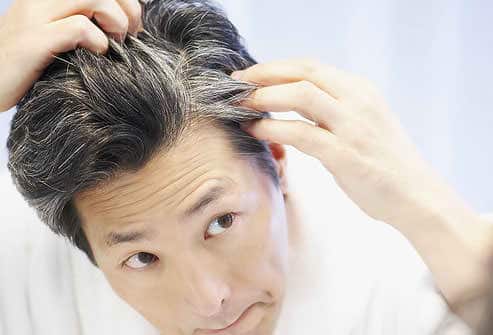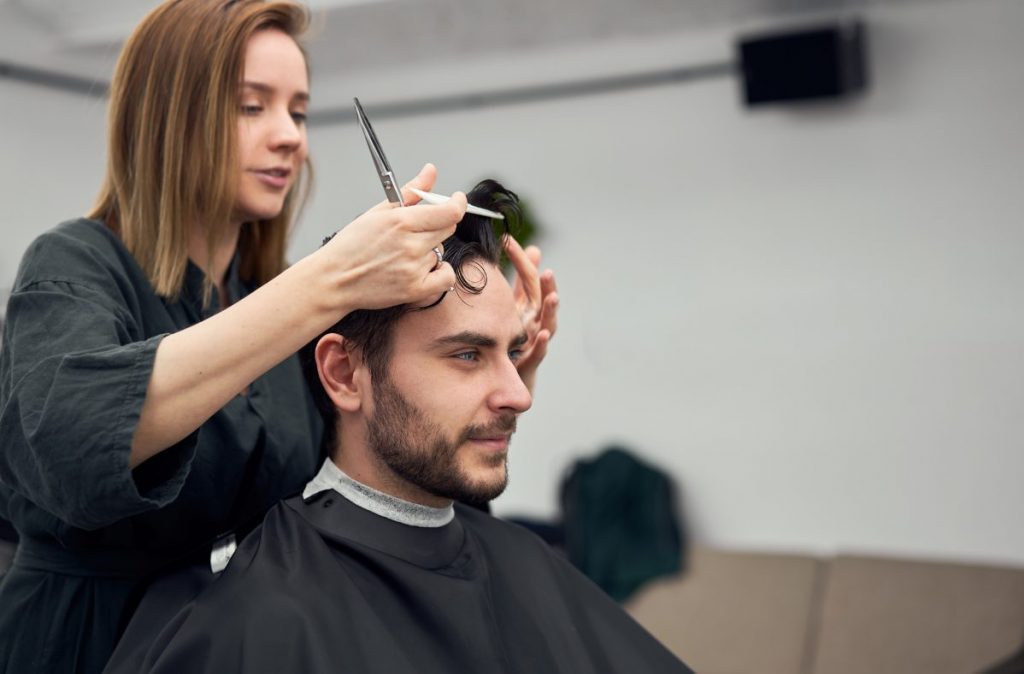What To do Before a Hair Transplant?
What To do Before a Hair Transplant?
Deciding to undergo a hair transplant is a vital and gratifying step for any hair loss patient. The outcome of the hair transplant represents a marked improvement. Still, you should know what to do before a hair transplant. It is vital to be properly prepared in each stage of the hair transplant process.
That is why you have to develop a thorough understanding of every aspect of the procedure. Aside from that, you should understand the restoration process as well. A good first step for this is a consultation with hair transplant clinics in Houston as well as clinics in:
- Dallas
- NYC
- California
- Washington, DC
- Abu Dhabi
- Dubai
- Connecticut
- Chicago
- Manila
Here, outstanding hair transplant doctors and consultants can talk you through the process.
There are many factors that you must know before a hair restoration procedure. Also, you have many ways to gain valuable insight and information about the process including:
- Previous hair transplant patients
- Hair transplant surgeon
During the initial consultation, the doctor will outline the process in its entirety. Also, they will help you decide upon an ideal course of action. After selecting a procedure, the doctor will give you specific instructions to follow. This instruction includes what to do before a hair transplant and each stage of the process.
Things to do before Hair Transplant: Adhere to the Pre-Operative Guidelines

Your hair transplant doctor will tell you what to do before a hair transplant.
Before the process, you should follow the pre-operative instructions provided by the doctor. This is because it will go a long way in ensuring that the procedure will go as smoothly as possible.
Following these pre-operative guidelines will have an impact on the post-operative recovery process. So, it ensures that you cut the possibility of experiencing any pain or discomfort.
Why should you make the requisite short-term lifestyle adjustments?
By doing so, it ensures that you have the best possible long-term outcome for your hair transplant.
Medications to Avoid Before a Hair Transplant
Patients taking any blood thinners should inform their doctor as soon as possible. This is because these medications are capable of creating a contraindication before surgery. Several medications fall into the category of blood thinners. This includes, but not limited to:
- Plavix
- Coumadin
- Heparin
Not only that, but you should also let your doctor be aware of the use of any broad beta-blockers like Inderal. This medication is used as a substitute beta-blocker. Besides, it may have to be prescribed in advance of the surgery.
As the scheduled surgery date is approaching, you should be more attentive to the medications and vitamins you consume. You should stop taking:
- Vitamin B or E
- Multivitamins that include Vit. B or Vit E
You should skip taking these vitamins for at least one week in advance before the procedure. For the reason that these vitamins may increase the incidence of bleeding. Three days after the surgery, you can now resume your vitamin B or E regimen.
Aspirin
Before the scheduled procedure date, avoid taking Aspirin for at least one week. Stop taking any other painkillers or pain relievers as well. You can resume drinking these medications 3 days after the hair transplant procedure.
So, any other prescription medication can be taken right up to the day of the procedure. You need to tell your doctor about your medications during the initial consultation.
You must know what to do before a hair transplant. By doing so, it ensures that both parties have all the needed information for the procedure. Thus, it also ensures that everything will go as smoothly as possible.
Alcohol and other Precautions Before a Hair Transplant
What to do before a hair transplant?
Before the scheduled date, stop drinking alcohol for at least three days. Alcohol consumption has many adverse consequences for your hair restoration surgery. So, refrain from drinking alcoholic beverages, 72 hours before the procedure.
Cigarettes and other tobacco products
What to do before a hair transplant?
Simply. Stop smoking.
Like drinking alcohol, the same goes true with cigarettes and other tobacco products. Cigarettes are more likely to contribute to poor healing during the postoperative phase. Due to the fact, the nicotine content in tobacco products causes:

- Blood vessel constriction
- Decreases the blood flow to the scalp
For that reason, patients who smoke are at an increased risk of infection and scarring.
Smoking: How can a hair transplant help you quit?
We all know that quitting smoking is a hard task. Thus, it requires support and motivation from your friends and family members. Having said that, undergoing a hair transplant could be a perfect time to quit smoking. A hair transplant can serve as a motivation for longtime smokers and tobacco users.
When you stop using tobacco, some of the harmful effects and risk factors associated with it lessens almost immediately. Yet, the duration needed to end or drastically reduce the risk is not precisely unknown. Besides, it is affected by the extent of one’s smoking habits.
Heavy smokers will likely need more time for the body and its processes to recover from the adverse effects of smoking. More importantly, it is best to quit smoking before the hair transplant procedure is possible. The earlier you stop using tobacco, the less likely you will experience poor healing after a hair transplant.
Yes, it is best to quit smoking long before the patient undergoes a hair transplant procedure. Usually, doctors recommend their patients abstain from smoking for at least one week before hair transplant. Likewise, refrain from smoking two weeks after the procedure.
Hence, it is vital to reiterate to stop smoking both before and after the procedure. The longer you abstain from smoking, then the healing process is more likely to be not adversely affected by it.
What to do before a hair transplant? Dye your hair in advance.
If you are the type of person who dyes your hair, then do so at least three days in advance before the procedure. Aside from that, you should also take time to meticulously scrub your scalp daily. By doing so, you are ensuring that your scalp is entirely free from any dye.
What to do on the day of the hair transplant procedure?
Shower before the procedure
All patients who are going to undergo hair transplants should ensure to shower before the procedure. Particularly, they should diligently wash their hair with regular shampoo. Furthermore, you should not apply hair products like:
- Sprays
- Gels
- Any other styling products
You should refrain from using these products on the day of the procedure. Not only that, but you should also remove any hair systems before showering. Thus, you should not wear them on the day of the procedure.
Wear loose-fitting and Comfortable clothing
On the day of the hair transplant procedure, you should wear loose-fitting and comfortable clothes. More so, wear button-down shirts so you don’t have to pull them over your head. This will prevent you from displacing the bandage on your head. Otherwise, you may harm your grafts after surgery when you wear T-shirts or tight blouses.
Eat your breakfast or have a light lunch
You will be advised to eat your breakfast on the morning of the procedure. If your appointment is in the afternoon, then you’ll be advised to eat a light lunch.
Refrain from wearing cologne or any valuables accessories
Your doctor will recommend you refrain from wearing perfume or cologne on the day of the procedure. Also, do not wear or bring any valuable accessories like a necklace, earrings on the day of the procedure.
Avoid drinking caffeinated beverages
If you are a coffee person, you should avoid drinking coffee, soda, or any drinks with caffeine. This is due to the reason that caffeinated beverages may lead to accelerated bleeding. Aside from that, it can also increase the patient’s sensitivity to the medications used during the procedure.
This is due to the reason that those medications can cause drowsiness in the patients. In any hair transplant procedure, the surgeon administers local anesthesia which can cause drowsiness to the patient. Thus, you should make transportation arrangements before the procedure. Your doctor advised you to have someone drive you to and from your destination.
You can ask a family member or a friend to accompany you on the day of the procedure. Moreover, you can rent a car service if you have no one to drive you. In case you failed to pre-arrange transportation, the hair transplant facility will call a car service. Thus, you will be responsible for the payment.
Medications to bring with you on the day of your Hair Transplant
Usually, patients may be asked to take a medication such as Minoxidil (Rogaine) in advance of the surgery. However, this will depend on the degree of hair loss and its classification. Patients whose surgery is limited to the crown of their head may not need to take such medications.
Additionally, your doctor will tell you to take antibiotics before the day of the procedure. This is to further prevent the risk of any infection. Although, antibiotics may not be prescribed until after the operation is done.
The surgeon prescribed different medications based on the individual circumstances of their patients. So, it is very critical that you follow your doctors’ pre-and post-operative instructions.
Some of the most medications prescribed includes but are not limited to:
Prednisolone (six times per day, one tablet of 5mg)
Hair transplant doctors prescribe Prednisolone to avert any possible incidence of forehead edema. Patients whose procedure affects only the crown of the head (vertex) are unlikely to be prescribed this medicine.
Augmentin 500mg (three tablets per day)
This antibiotic is often prescribed to help thwart any kind of infection. Also, the doctor may prescribe one of the other amoxicillin-based drugs for the same purpose.
If you have any allergies to medications of any kind, you should tell your doctor. More particularly, if those allergies are related to any of the mentioned medications. That is why the initial consultation is very important. This is because your doctor will be outlining your hair loss treatment also.
Cutting your hair: What to do before a hair transplant?

Do you need to cut your hair before the scheduled date? Well, it is not necessary that you should cut your hair before a hair transplant procedure. Your hair transplant surgeon will take care of this during the operation.
How to cut your hair for a Strip Hair Transplant?
There are many pre-operative tasks involved in a strip hair transplant procedure. Yet, getting a haircut is not one of them. Simply because the doctor will take great care to cut your hair on the day of the procedure. Besides, they will cut your hair on an as-needed basis. So, the remaining hair can easily cover the sutures in the donor site.
In a FUT hair transplant, the donor tissue comes from a single thin strip of hair from the donor area. That is why the doctor will only need to cut a small strip of hair from this location. Then, he will remove the donor tissue then suture it together. In most cases, the patient’s existing hair is enough to cover the sutures that are still there.
How to cut your hair for an FUE hair transplant?
Patients undergoing Follicular Unit Extraction (FUE) need a haircut very close to their scalp. Also, it is only necessary to shave the donor area. Yet, many patients prefer a uniform look and opt to have their entire head shaved. Other patients will choose a “high-and-tight” haircut. Yet, you don’t need to cut your hair in advance of the procedure.
Yes, it may be helpful to cut your hair before the procedure. Yet, the doctor may still have to shave certain areas of the scalp to ensure the best possible results.
That is why it is best to know what you should do before a hair transplant. Thus, the doctor will discuss all these things during the initial consultation.
Also, patients undergoing minor hair transplants may not have to cut their hair so short. This is because the donor areas can be disconnected by sections of hair. So, it can obscure the donor site. The same is true for patients with longer hair. Since the remaining hair from the disconnected sections will drop down to cover the areas shaved. More extensive FUE needs the shaved hair cut to secure the largest yield from the donor site.

